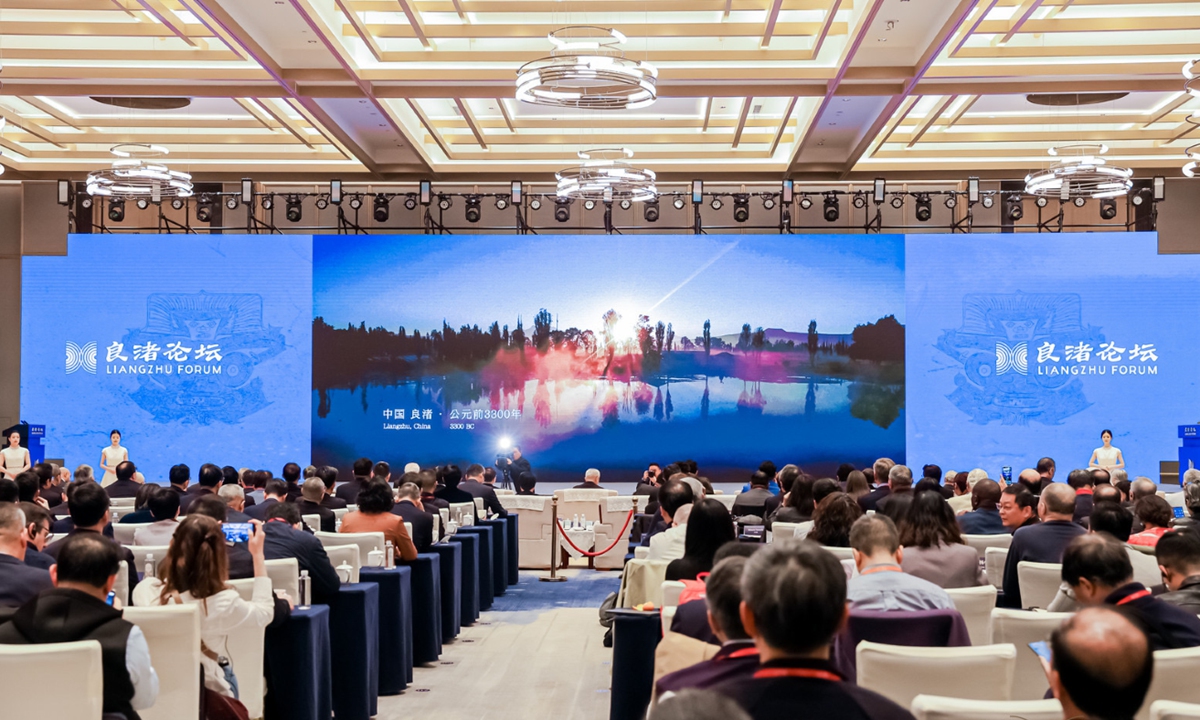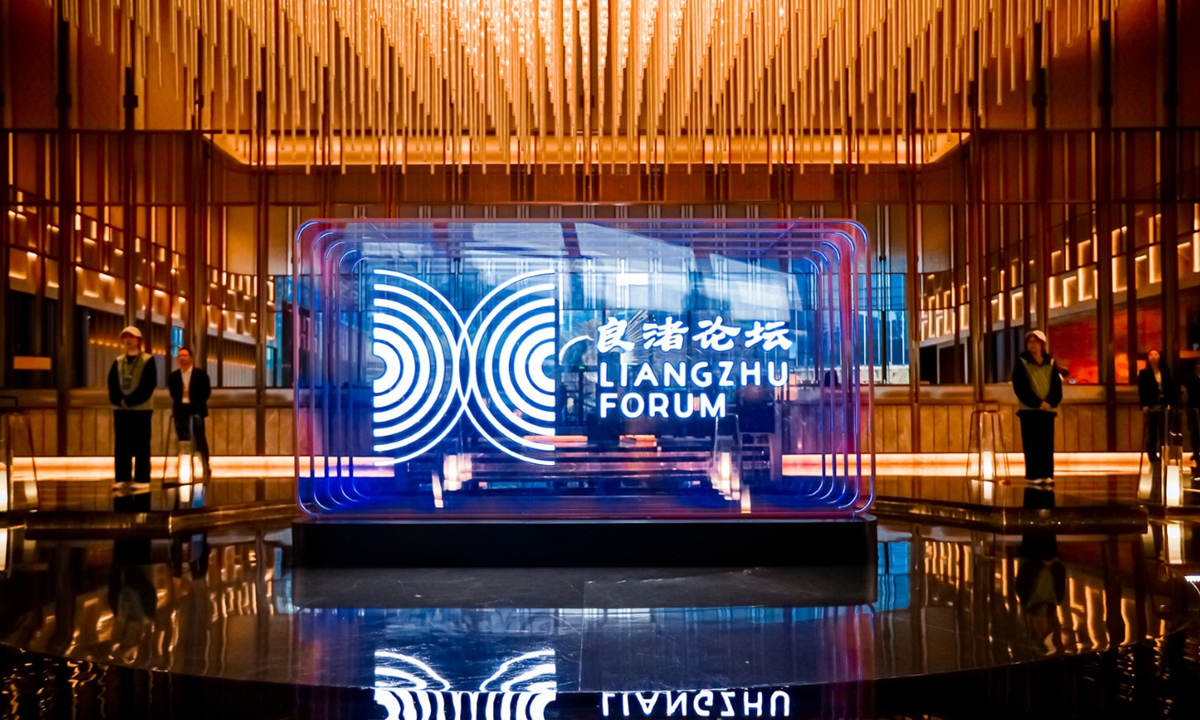
Photo: Courtesy of organizing committee of the Liangzhu Forum
Over 300 guests from more than 60 countries and regions, including archaeologists, writers and musicians, participated in the second edition of the Liangzhu Forum that was held in Hangzhou, East China's Zhejiang Province, on Monday.
Experts from China and abroad said the forum plays a significant role in appreciating China's ancient civilization, preserving historical and cultural heritage, and promoting cultural inheritance, development, exchanges and cooperation.
They expressed the hope that the Liangzhu Forum would be leveraged fully, and that people from different circles could use it to deepen mutual understanding through discussion and turn the Global Civilization Initiative (GCI) into action.
With the theme "Exchanges and Mutual Learning for a New Model for Human Advancement," the forum aims to delve into topics such as "Rediscovery of Civilization: Archaeology from a Global Perspective and Variety of Civilizations," "Creativity of Literature: Resonance of World Literature and Development of Human Society," and "Evolution of Music Spirit: Modern Echoes of Global Music Legacies."
Jane Ellen Buikstra, a member of the National Academy of Sciences and the American Academy of Arts and Sciences, emphasized the significance of ancient DNA in conjunction with paleopathology for understanding the history and evolution of diseases like tuberculosis and syphilis. She also discussed the study of the infectious disease glanders, its impact on commerce and warfare, and the potential insights Chinese archaeological records could provide on its evolution.
Zhao Hui, a professor at the School of Archaeology and Museology, Peking University delivered a speech titled "A Simplified Overview of the Prehistoric Times of China" at the forum, covering China's 5,000 history by listing different archaeological sites.
He told the Global Times that evidence from the Liangzhu culture, including its discovered ancient city, suggests the presence of a supreme authority at the time, aligning with German historian Max Weber's definition of a state.
Drawing on Liangzhu and other early Chinese states after 3000 BC, scholars have identified key criteria for early civilizations, including advanced agriculture and handicrafts, with clear divisions of labor and distinct social stratification, as evidenced by large aristocratic tombs, exclusive cemeteries, and a ritual system denoting noble status.
He also expressed his anticipation for the upcoming archaeology sub-forum, where he looks forward to discussing civilization exchanges with guests from home and abroad.

Photo: Courtesy of organizing committee of the Liangzhu Forum
Mai Jia, a well-known novelist and playwright, stated that the Liangzhu civilization is evidence of the 5,000 years of Chinese civilization and an integral part of world civilization. He said that starting from Liangzhu, one can trace the roots of the Chinese nation and touch the future of world civilization.
He said that, as a writer, he felt at home at the forum, which has literature as one of its themes. Literature, he said, is not just about words, but the human heart. It is the study of people, a high regard for civilization, and a care for humanity. Through the forum, he hopes to understand more about world civilizations to better put the GCI into action.
During the forum, an exhibition about a collection of ancient Chinese paintings and a special concert titled Echoes of Liangzhu were also held, according to a document that the organizers issued on Monday.





